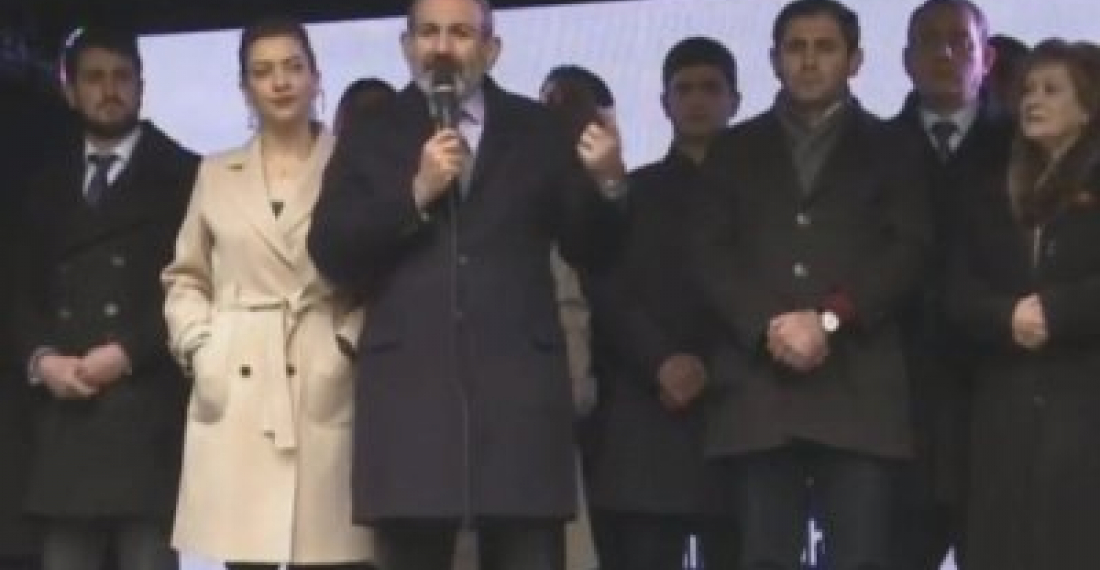Armenian prime minister Nikol Pashinyan has highlighted the importance of Armenian-Iranian relations during a speech in the town of Kapan, the regional capital of Armenia's Syunik Province which borders Iran. Pashinyan was addressing a rally of his "My step" party, ahead of important parliamentary elections on 9 December.
The relations between Armenia and Iran have always been at a high level, and it is necessary to do everything for these relations to remain so, the prime minister said, adding:
"There are no wrinkles in the Iran-Armenia relations, but it is also understandable that there are also forces which want to create these wrinkles. And I want to express hope and confidence that the governments of Armenia and Iran will take measures and will ensure the normal development of the Armenia-Iran relations. And this is really a priority for our government, and we will do everything to reach this goal. We know that the international situation around Iran is quite tense and are confident that any international issue must be solved through negotiations without use of force or threat of force and compulsion. We hope these developments will move on this path."
According to reports in the Armenian media Pashinyan said measures are being taken, also with the support of international partners, to develop Armenia's relations with Iran. "The border checkpoint with Iran will soon be reconstructed by the funds of the EU, and we are going to have a modern border checkpoint", he said.
Pashinyan also touched upon some difficulties faced by Iranian and Armenian drivers during the course of their work.
"I also know that there are some complaints among the Iranian drivers in connection with their work in Armenia, and the Armenian drivers face some difficulties in Iran over their working conditions. But I am confident that the governments of our countries will discuss all these issues in an atmosphere of friendship and brotherhood and will solve them", Pashinyan said.
He added that the inter-governmental level agreements reached between Iran and Armenia successfully continue, in particular in the energy sector. He expressed hope that the trade turnover of the two countries both in the energy and the remaining sectors will increase, as well as new economic ties will be established, new investments will be made.
"The Republic of Armenia is open also for the Iranian investments, and we hope that there will be new investments in Armenia, including by our compatriots who are citizens of Iran", Pashinyan said.
source: commonspace.eu with agencies
photo: Armenian Prime Minister Nikol Pashinyan speaking at a "My Step" rally in Kapan on 1 December 2018






